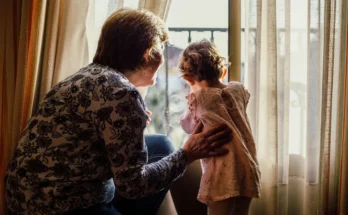I’m Paula, a retired widow and proud grandmother to little Emily. Every Saturday morning, I visit her just to soak in her laughter and warmth. So when my son and daughter-in-law planned a vacation, I naturally offered to babysit. But my daughter-in-law insisted on hiring a nanny she “trusted.” I didn’t like the idea of a stranger caring for Emily, but I kept quiet, hoping for the best. Still, something gnawed at me, so I decided to check in the next day—unannounced.
What I walked into was chaos. The kitchen was a disaster zone, dishes piled high, food smeared across counters. The living room looked like a tornado had passed through. I panicked and demanded to know where Emily was. The nanny, unfazed, said she was asleep upstairs. I rushed to her room—thankfully, she was safe. But I couldn’t shake the fury. I told the nanny to leave immediately. She refused, saying only her employer could fire her. That’s when I threatened to call the police.
Only then did she pack up and go. I stayed with Emily, cleaned up the mess, and waited for my son and his wife to return. When they walked in, they were stunned to see me instead of the nanny. I explained everything—the filth, the neglect, the nanny’s defiance. My daughter-in-law didn’t take it well. She stormed out to call the nanny back, furious that I had “interfered.” My son, caught in the middle, asked me to leave. I felt crushed.
For a week, I heard nothing. No calls, no texts. Just silence. I kept replaying the scene in my head—had I gone too far? Should I have called them first instead of acting on instinct? But I couldn’t ignore the mess or the risk to Emily. I acted out of love, not defiance. Still, I feared I’d damaged our relationship beyond repair. Was protecting my granddaughter worth this fallout?
I know my reaction came from a place of deep concern. Seeing Emily left alone in a wrecked house triggered every protective instinct I had. The nanny’s indifference and arrogance only fueled my response. I didn’t plan to overstep—I just couldn’t stand by and do nothing. But I also understand how my son and daughter-in-law might’ve felt blindsided. To them, I probably looked like I didn’t trust their judgment.
They made a plan they believed was safe. My surprise visit may have felt like an ambush. And firing the nanny without consulting them likely felt like a betrayal. I get it now. I should’ve called them first. I should’ve explained calmly. But in that moment, I saw danger and acted. I hope they can see that my heart was in the right place, even if my actions weren’t perfect.
I’m giving them space. Maybe another week. Then I’ll reach out—not to justify, but to apologize for how I handled things. I’ll say, “I’m sorry I overstepped. I should’ve called you first.” I won’t apologize for caring, but I will for the way I acted. I just want to rebuild trust. I want to be part of Emily’s life without tension or resentment. I hope they’ll let me back in.
Because at the end of the day, I did what I thought was right. I trusted my gut, and I’d do it again if Emily’s safety were at stake. But I’ve learned that love sometimes needs restraint. That protecting someone also means protecting relationships. I hope my son and daughter-in-law can see that—and that one day, they’ll thank me for being the grandmother who cared too much.


